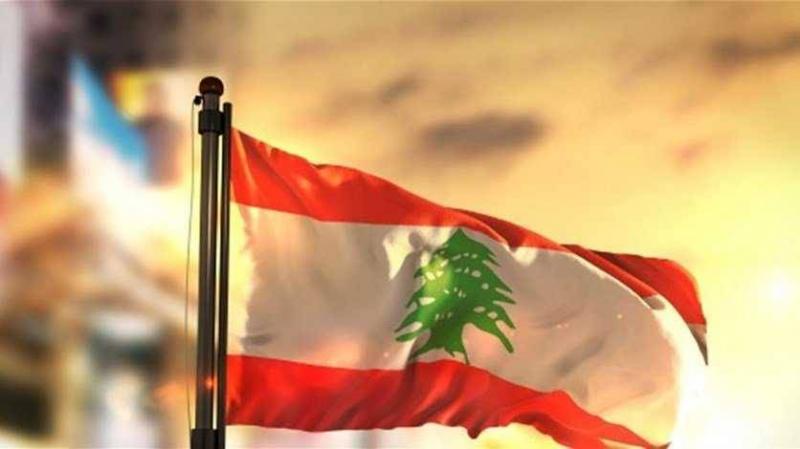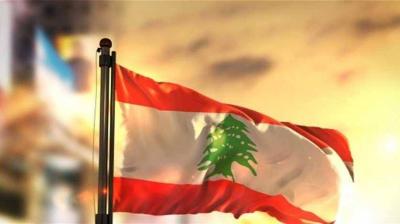Fears are growing of "octopus-like" crises that Lebanon is slipping into, having become accustomed to arriving late to solutions that are now outpacing rapid financial and humanitarian collapses and the heated tectonic plates in the region that have always influenced the reality in the "land of the cedars." Given the circumstances, the anticipation of a crisis regarding the formation of the post-elections government seems inevitable. This issue has turned into a "backyard" matter for the presidential elections, which are being treated as unlikely to take place on their constitutional deadline (October 31 at the latest).
The "maritime mine" created by the "escalation" of the border demarcation issue with Israel and the conflict over gas and oil fields suggests it may serve as a "trap" for the overall Lebanese situation, considering the diverse backgrounds and hidden factors governing this topic linked to "regional shocks" and beyond. As Lebanon enters the second month after the May 15 elections, there is currently no indication on the horizon that the renewal of authority through a fully qualified government is nearing breakthroughs, even through the imminent appointment of the individual who will undertake its formation.
There is a notable "finger-pointing" dynamic emerging between President Najib Mikati, who seems most likely to resume the governmental helm but not under the conditions of others, and the team of President Michel Aoun, who manages this file as a "front line" for the presidential challenge and its political implications, outlining, against every ceiling, what corresponds in terms of establishing a "negative balance" based on two rules: firstly, a "fully political government" versus Mikati's preference for a composition that is nearly a "copy" in nature and balances of the one he formed last September; and secondly, deliberately prolonging the time to keep the caretaker government in place until Aoun's term expires to inherit presidential powers, without considering the interests of the "Free Patriotic Movement" and its leader Gibran Bassil, who will not accept a "lightweight" politically managed government for the phase of presidential vacuum, which could open the door to "keeping every existing constitutional site and institution without time limits," hinting at Aoun's potential continued stay at Baabda Palace.
After the 2022 Parliament elections established parliamentary committees, their chairs, and their rapporteurs, the complexities related to the governmental file seem to have hidden behind, two additional elements are feared to push further delays in the compulsory parliamentary consultations that only the President can summon to appoint a prime minister. The first is related to the session for electing the committees in that the coalition of "Hezbollah" and the Free Patriotic Movement and their allies executed a "deliberate deployment" behind what turned out to be an "illusory majority" that won the parliamentary elections. This coalition won the leadership of 11 committees out of 16, concurrently establishing the existence of loose and moving parliamentary blocs, which scatters votes in the process of naming the prime minister. This is especially concerning if the "Free Patriotic Movement" refuses in a game of extortion against Mikati to name him, which could lead the President and even "Hezbollah" to prefer delaying the consultations to avoid surprises, a precision that will unfold in the coming days.
The second issue concerns the maritime delineation between Lebanon and Israel, which has moved to another phase since the arrival of the Greek production vessel "Energean Power" at the "Karish" field, with Beirut appealing to American mediator Amos Hochstein arriving in "the land of cedars" tomorrow for a two-day visit to hear the responses of Lebanese officials to a proposal he previously presented in February regarding the dispute over the area between the Israeli line 1 and the Lebanese line 23 (spanning 860 square kilometers), reflecting a tendency for sharing fields underwater rather than demarcating borders above them.
Aoun will certainly not summon for the consultations during the first half of the coming week, awaiting Hochstein's departure and evaluating the outcomes of his visit, with well-informed quarters stopping at two matters: the first is the absence of Parliament Speaker Nabih Berri, who was instrumental in the framework agreement that launched demarcation negotiations in October 2020 with UN sponsorship and American mediation at the "UNIFIL" headquarters in Naqoura. He seemed to implicitly approve the line 23 but was absent from the meeting that took place in Baabda Palace yesterday between Aoun and Mikati, dedicated to discussing what Lebanon would convey to Hochstein, particularly whether Beirut would definitively abandon the line 29 proposal (expanding the disputed area by 1,430 square kilometers) or keeping it as an "open" negotiation line to ensure renewed shuttle negotiations along the Lebanon-Israel line through the American mediator and obtaining whatever gains are possible from the area lying between lines 1 and 23.
It was not a coincidence that reports linking Berri’s absence from the Baabda Palace meeting to Aoun’s previous reminder that he holds this file as it is "part of international negotiations" raised questions about whether the Speaker does not want to involve him in the responsibility for any choices or backtrack from them that he did not originally support, presenting concerns regarding the unity of the Lebanese position on responding to Hochstein's proposal. It is noted that Mikati brought with him to Baabda Palace "a file in black," which reports indicated included maps, while "Al-Jadeed" channel noted that "so far, no position or ceiling or official negotiation document would be issued pending what the American mediator brings."
Remarkably, the U.S. State Department announced that Hochstein would visit Lebanon on the 13th and 14th of this month to discuss sustainable solutions to Lebanon's energy crisis and emphasized the Biden administration's stance, hoping Lebanon and Israel would agree on maritime border demarcation, which "welcomes a deliberative spirit and the openness of the concerned parties to reach a final decision that enhances stability, security, and prosperity for Lebanon, Israel, and the region."
As for the second matter, it is the strong entrance of Hezbollah's Secretary-General Sayyed Hassan Nasrallah into this file, outlining an equation that demands "the cessation of extraction from Karish and the immediate withdrawal of the Greek vessel" pending the end of negotiations, otherwise "we will not remain passive." Nasrallah warned the Greek company against becoming involved "in this aggression and provocation against Lebanon and should bear full responsibility for any harm that may befall it materially or humanely," affirming the "capacity, material, military, security, and logistical" means to prevent them from extracting. He said, "We cannot sit idle, and we will not sit idle; all options are open and available on the table. We do not want war, but we do not fear it.”
He declared that "the immediate goal should be to prevent the enemy from extracting oil and gas from the Karish field... It does not matter where the ship is stationed, and where the drilling and extraction occur. The risk is that the enemy will begin extraction in the shared and disputed field, while Lebanon is forbidden from extracting what is in its areas and blocks outside the dispute."
Well-informed circles in Beirut are keen to situate Nasrallah's pushback within the broader framework of Hezbollah's actions, which only moves based on this context related to regional files, even if its starting point is rooted in Lebanese "titles." These circles, via the Kuwaiti "Al-Rai," observed that the goal of halting extraction from Karish, while bolstering Lebanon's negotiating position on the basis of "no gas from Karish without gas from the Qana field," which the President’s team aims to include fully within Lebanon's exclusive economic zone even under line 23, has "linkages" reaching to the issue of the war in Ukraine and the game of "who yells first" between Russia and the West in the "gas arena," considering that gas from Karish is expected to be ready for export to Europe in around two to three months.
Moreover, they noted that it is impossible to separate the direct threat to the Greek vessel from the tension between Iran and Athens over mutual oil tanker seizures, noting that the Greek Ministry of Foreign Affairs summoned the Lebanese chargé d'affaires in Athens the day before yesterday to express its protest against Nasrallah's statements, emphasizing that "Energean Power" is not state-owned and represents a consortium of international companies that includes some shareholders among Greek businessmen.




